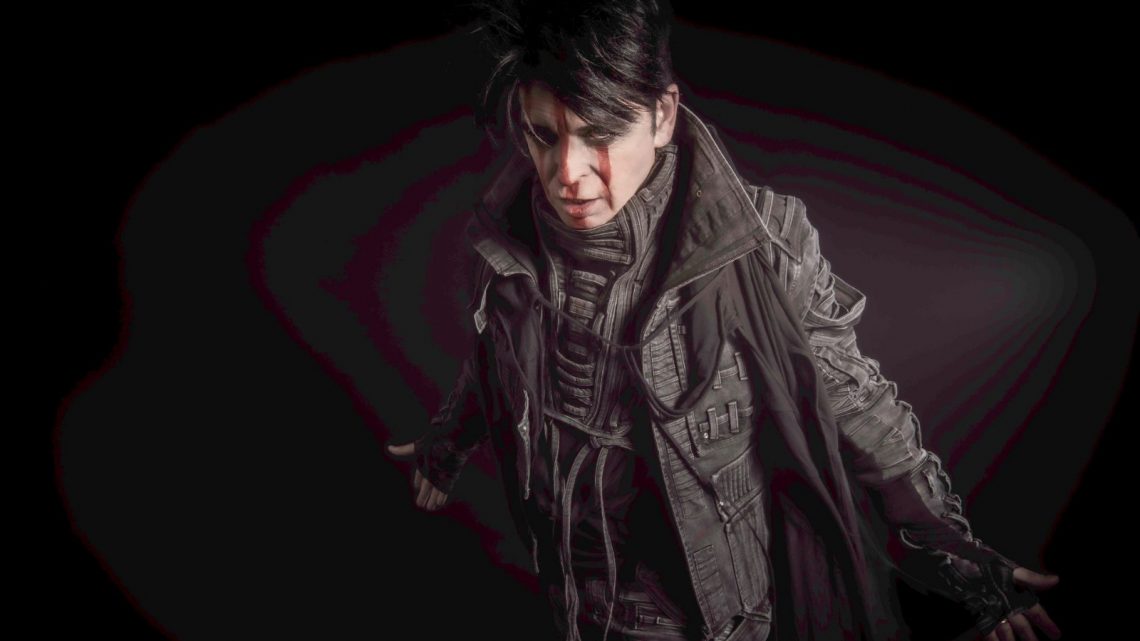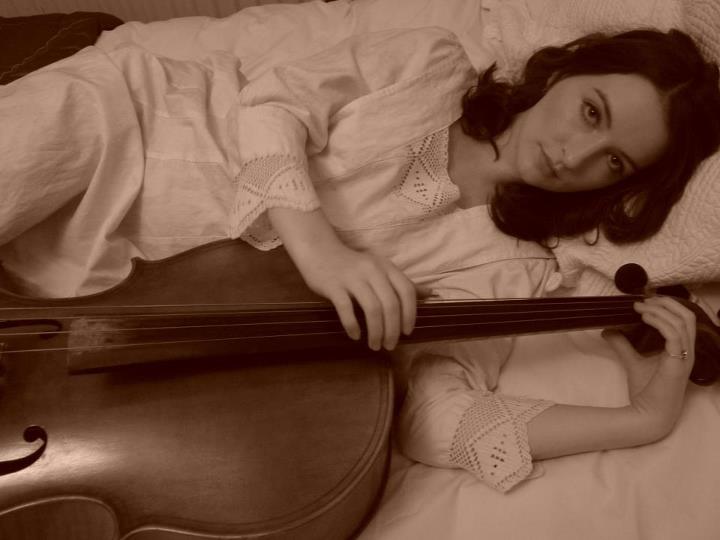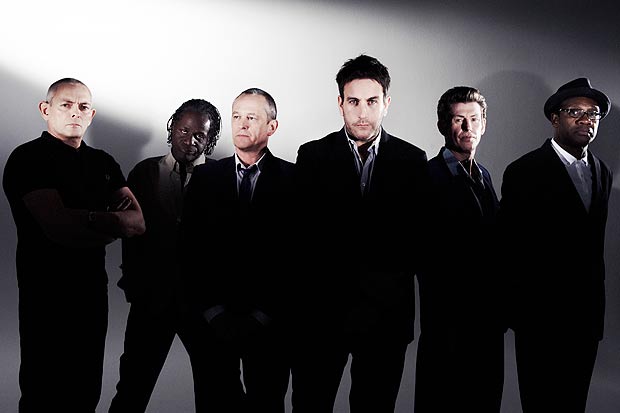It’s almost 45 years to the day since Gary Numan appeared with Tubeway Army in one of the all-time memorable Old Grey Whistle Test performances, promoting the then-new album Replicas. The band, led by some shamanic, androgynous alien cyborg, felt like a transmission of Ziggy Stardust & the Spiders as imagined by William Gibson or Philip K. Dick. A totem for the lost and alienated, his words sought out glimpses of humanity and connection in the darkest corners of a dystopia caused by the excesses of technology, and this was reflected in the music, a literal post-punk antithesis to the idyllic imaged techno-utopias of Kraftwerk.
His performance at the Limelight 1 celebrates the 45th Anniversary of his two most essential and acclaimed LPs – the second and final Tubeway Army album, Replicas, and solo debut, The Pleasure Principle. For this, he has revived a pared down version of the iconic neon light-tube pyramid of his original Touring Principle stage set, accompanied by lazers and assisted by the fifty-plusses in the crowd who haven’t quite worked out how to turn their flash off while they film an entire song. This interactive light show begins right as the melancholic futurist synthscape of ‘Replicas’ fades into the PA, the band take to the stage, and take over with an opening salvo of ‘M.E.’, ‘Me! I Disconnect From You’ and ‘Films’, giving the impression that this might be a front loaded set, until you realise how lean these albums are, and it’s going to be one of those gigs. No stone is uncovered, with deep cuts and non-album tracks of the period like ‘Only A Downstat’ and ‘We Are So Fragile’, and perhaps the definitive example of this early period of Ballardian brutality, ‘Down In The Park’ striking a particularly powerful blow.
The influence of Numan’s work, particularly in that early period – with both albums astonishingly released just 6 months apart – is manifold. Across this set, you can more or less trace the lines of synthesiser music history and its many branches, with the performance connecting those gossamer threads that run from Kraftwerk and Berlin-era Bowie (‘Complex’, ‘Replicas’) through to post-punk (‘The Machman’) new wave synth-pop (‘Me! I Disconnect From You’, ‘M.E.’) through to, most famously, cold, proto-industrial acts like Ministry and NIN – the latter of whom famously covered . Having performed with both, his influence has come full circle, with a lot of the material reimagined and sculpted for modern times in ways that imbue them with a dose of the crushing, yet danceable heft of those he inspired, without falling victim to the kind of cybergoth trappings that the style so often leads to. He’s accompanied by a four-piece band, with his shaven-headed, face-painted guitar duo, in half-dress, half-suit garb looking every bit the uncanny, inhuman image of Dune’s Harkonnens, jerking and violently contorting their bodies and adding a cyberpunk theatricality to the show.
The same applies for his stage presence – the 66 year old Numan’s vocal chords have hardly aged a day, and his performance is full of passion and angsty showmanship in the Trent Reznor school of frontmen, cutting a rather different figure than the stoic android persona he exuded in 1979. His evident comfort in this theatricality stems perhaps partly in the confidence found across his 40+ year musical evolution, during which time he’s found kindred spirits in later generations of artists, having just this year toured with Al Jourgensen’s Ministry. The strength of the source material is such that an adequate performance tonight would be an easy four stars in and of itself, but from the start, the show genuinely feels like some kind of happening. The one stinger is that original venue choice of Belfast’s Telegraph Building would have provided ideal foil for the industrially anthemic nature of this performance, but the sold out crowd – a veritable grey-inclusive rainbow of Numanoids – is a testament to his enduring connection.
After several minutes of football terrace ‘Numan’ chants, the band returns to encore his two number one singles, those sacred texts of pop: ‘Cars’ and a thumping ‘Are ‘Friends’ Electric?’, it dawns on your writer during this brace just how strange these songs are as era-defining hits; not a chorus to be heard, just enormous cushions of synthesised, synapse-triggering synth lines to get lost in. Throughout the 22-song setlist, Gary Numan says not a word between songs, but it hardly goes noticed. His one longstanding theme has always been one of unspoken and implicit observations on connection with that which seems contrary to human nature, with these hits perhaps the prime example. As ‘Friends…’ breaks down to near-silence, he sings those final words: “So it’s time to leave. You see this means everything to me.” before enveloping the room one final time with a descending blanket of sound. Stevie Lennox






